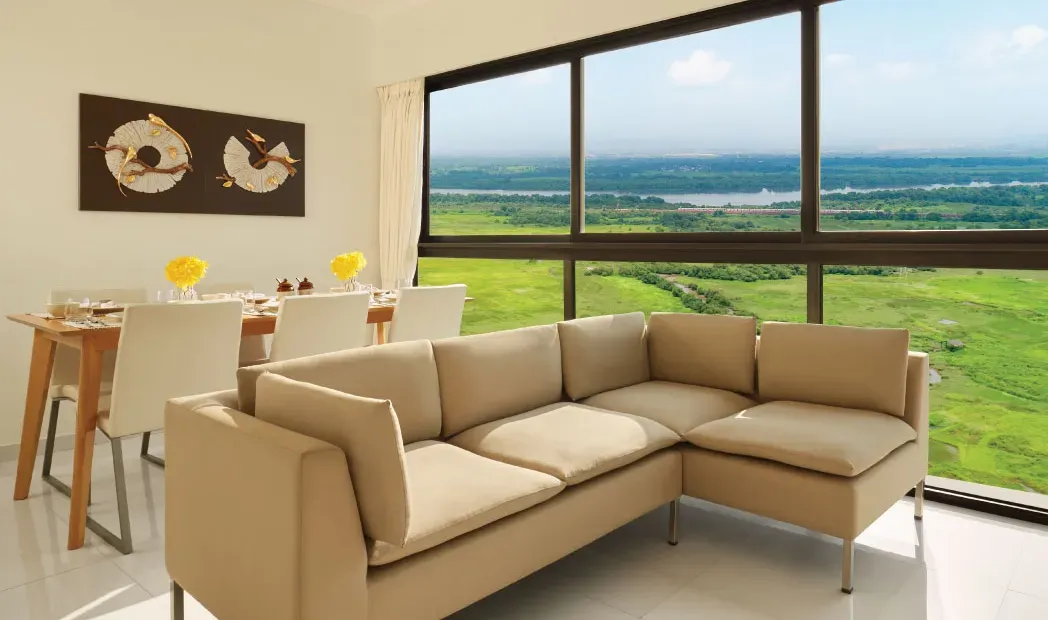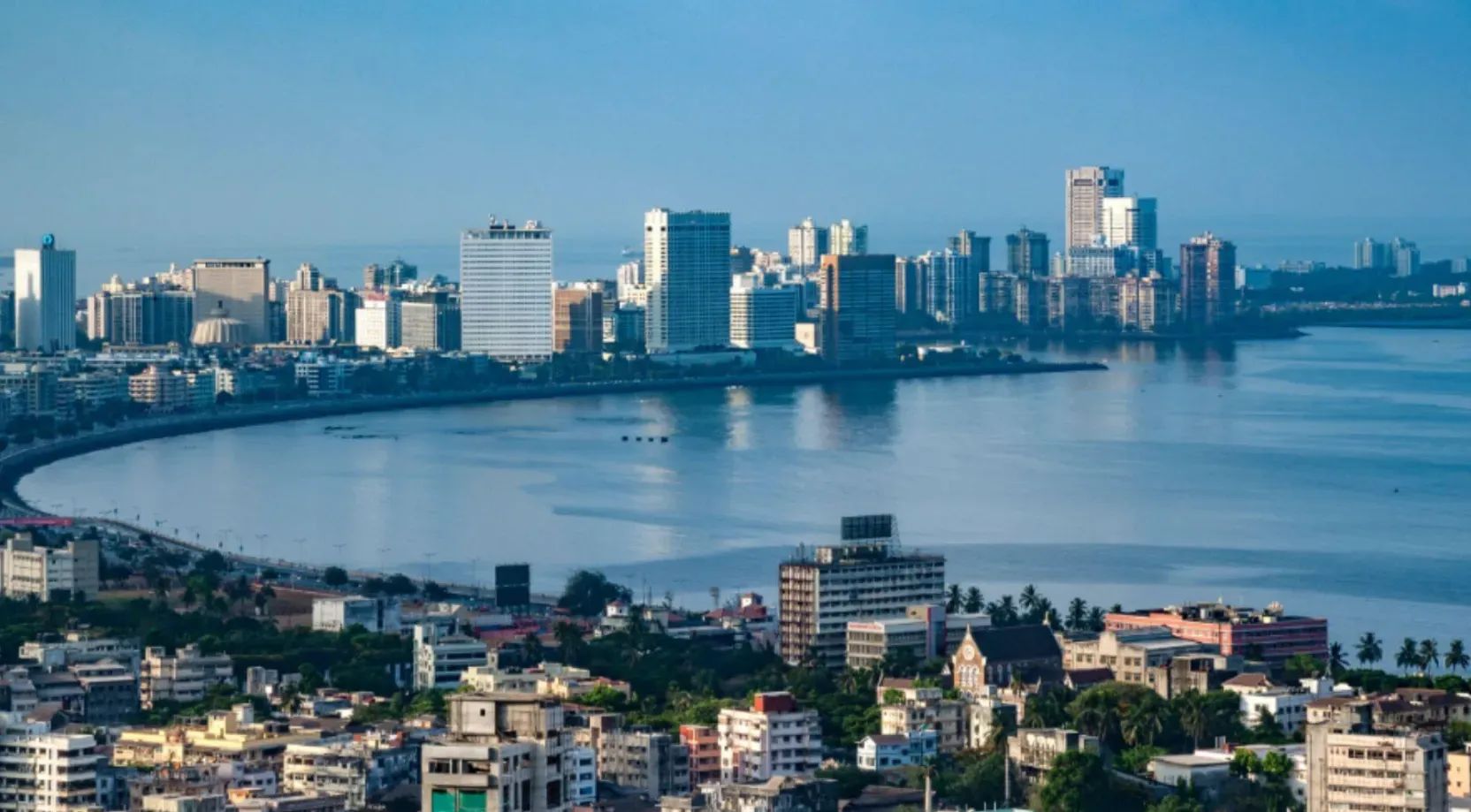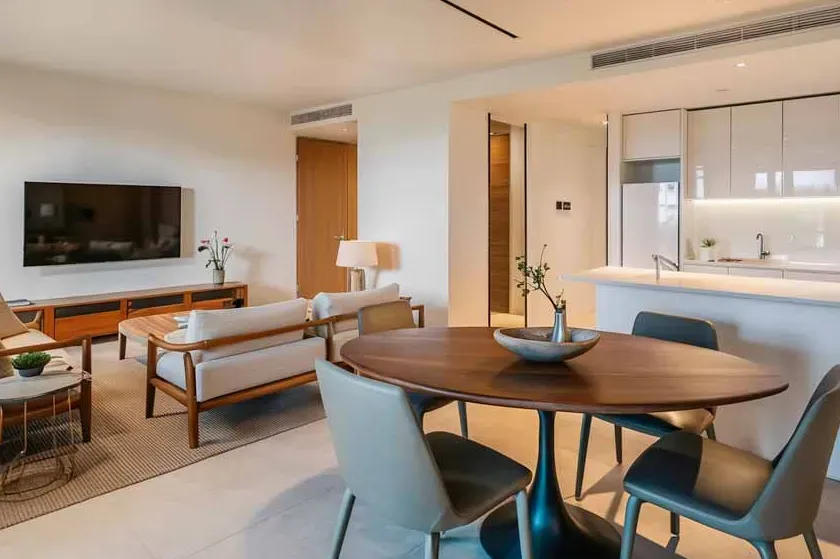Is It Worth Buying a 1BHK in Mumbai in 2025, or Should I Wait?

By
Shrusti Naik
Posted on September 18, 2025. 10 mins

Is It Worth Buying a 1BHK in Mumbai in 2025, or Should I Wait?

Buying a 1BHK flat in Mumbai is a major decision, especially in 2025 when property prices, taxes, infrastructure, and market trends are all in flux. Whether you’re a first-time homebuyer, an investor or someone looking for a compact unit due to lifestyle, you need to weigh both current conditions and what the near future might look like. This article walks you through data, trends, costs, regulations, potential risks, and offers guidance so you can decide: buy now or wait.
Key Stats at a Glance (2024-2025)
| Metric | Value / Range | Source & Context |
|---|---|---|
| Price for 1 BHK flats in Mumbai | ₹ 60 lakh to ₹ 1.5 crore | depending on sub-urban vs premium localities. |
| Property tax hike 2025-26 | Up to 15% increase | Applicable to over 9 lakh properties in Mumbai. |
| Ready Reckoner Rate increase (Maharashtra) | ~3.9% across state effective April 2025 | Affects stamp duty, property valuation. |
| Annual growth in average property values in top cities | ~3.5% QoQ in Q2 2025 | Brazil & Magicbricks PropIndex, led by infrastructure boosts. |
| Small flat (1BHK) price drop | ~5% YoY in some segments | Suggests demand shifting slightly away from smallest units in prime areas. |
What’s Driving Prices & Demand for 1BHK?
Before deciding, you should understand the forces pushing prices up or restraining them.
- Infrastructure projects: Mumbai is seeing multiple large scale infrastructure developments, Metro expansions, the Coastal Road, Trans-Harbour Link etc. These improve connectivity, making suburbs more desirable and pushing up prices in those areas.
- Regulatory changes: The Maharashtra government raised Ready Reckoner rates by ~3.9% as of April 2025. Also, property tax in Mumbai has been increased by up to 15% for many units.
- Interest rates & home loans: Lower mortgage interest rates (in many banks) and better financing options make buying more feasible now. Many developers are offering flexible payment plans.
- Supply dynamics: Redevelopment activity is booming, estimates suggest 44,000+ new homes worth ₹1.3 lakh crore will come up by 2030 across Mumbai via redevelopment of old societies. This rise in housing stock, particularly in suburban areas, may moderate price rises for 1BHKs in those zones.
What Are the Costs Involved Right Now?
Buying a 1BHK isn’t just sticker price. Let’s break down the costs and what they might look like in 2025.
| Cost Component | What You’ll Pay / Expect | Why It Matters |
|---|---|---|
| Flat purchase price | ₹ 60 lakh – ₹ 1.5 crore depending on location & amenities (prime vs suburban) | Premium areas (South Mumbai, Bandra etc.) command much higher per sq ft rates. Suburban/localities are more affordable. |
| Stamp duty & registration | Based on the RR rate (city’s ready reckoner); with the ~3.9% hike RR as of April 2025, stamp duty increases accordingly. | Adds a non-trivial upfront cost. |
| Property tax (MCGM/BMC) | Increased up to ~15% for FY2025-26; small / under 500 sq ft units may be exempt or lower rate. | Higher recurring cost, matters for monthly budgeting. |
| Maintenance / Society charges / Amenities | Varies a lot; premium buildings charge more. Also cost of upkeep, parking etc. | Over time, these affect total cost of ownership. |
| Opportunity cost & holding costs | If wait, inflation, interest rates, price rises could make flats cost more later. But also tax/regulatory risk, idle capital. | Important if buying as investment or expecting appreciation. |
Should You Buy Now or Wait?
Here are the pros and cons, given current conditions, followed by what kinds of buyers should buy now vs. wait.
Pros of Buying Now
- Locking in prices before further hike: With RR rates, property tax rising, and continuing infrastructure improvements, prices especially in well-connected suburbs are likely to go up.
- Good loan rates & payment plans: Many developers now offer flexible payment, down payments spread out, which eases cash flow.
- Redevelopment benefits: Old buildings are being redeveloped; buying in areas likely to be redeveloped means infrastructure improvements.
- Better deals in non-prime areas: Suburbs may have a flatter trajectory: cheaper now, with good potential.
Cons / Reasons to Wait
- Competition & inflated pricing in premium localities: Prime areas like Bandra West, Andheri West already have 1BHKs priced close to upper-range; margins for appreciation may be less.
- Regulatory uncertainties: Future RR increases, tax changes, possible changes in zoning, permissions. If policies shift unfavorably, you may lose expected gains.
- Supply overhang in suburbs: The redevelopment boom means many new flats in suburbs may saturate demand, potentially slowing appreciation.
- Cost of maintenance & rising dues: Society maintenance, property tax, parking charges may rise; so total cost of ownership may grow.
Where & What to Look for: Locality Comparison
Choosing the right locality can make a huge difference in price per square foot, future growth, and livability. Here’s a comparison of a few areas for 1BHKs in Mumbai in 2025.
| Locality / Zone | Approx Price per sq ft (1BHK) | Typical Flat Price Range (1BHK) | Upside Potential | Trade-offs |
|---|---|---|---|---|
| Prime / Central (South Mumbai, Bandra, Juhu) | ₹25,000–₹45,000+/sq ft [6] :contentReference[oaicite:13]{index=13} | ₹1.2 crore to ₹1.5+ crore | High prestige, high capital appreciation, low supply | Very high cost, traffic, premiums for amenities; high taxes & maintenance. |
| Western Suburbs (Andheri, Goregaon, Kandivali etc.) | ₹17,000–₹28,000 | ~₹60-80 lakh to ~₹1.2 crore depending on newer vs older building | Good infrastructure, more stock, easier access to transit, relative affordability | Commute times, congestion, sometimes lesser amenities in older buildings. |
| Suburban Growth Areas (Thane, Navi Mumbai, Mira Road, Panvel) | ₹10,000-₹22,000 | Flat costs more moderate; you may get larger size, newer amenities | Huge upside as connectivity improves, less premium, more breathing space | Distance, commuting cost/time, sometimes lower resale premiums or liquidity. |
What Forecasts & Experts Say
- Report from GlobalPropertyGuide projects average home prices in major Indian cities will rise by ~6.5% in 2025 and ~7.5% in 2026, led by demand in luxury segments.
- Mumbai’s property rates per square foot in many micro-markets have already risen vs last year; weighted average property rates increased ~1% in early 2025 vs 2024, showing modest growth.
- Some data suggest that smaller 1BHK units in prime localities have seen price drops or stagnation (~5% YoY), possibly because demand is shifting to 2BHK or flats with more space/features.
What Kind of Buyer Should Buy Now vs Wait
| Type of Buyer | Should Buy Now If… | Should Wait If… |
|---|---|---|
| First-Time Homebuyer | You find a 1BHK in a well-connected suburb, your loan terms are good, and you can absorb tax/hiking costs. | You’re budgeting tightly, or want more amenities/space for slightly more money; waiting may yield better supply or more favorable deals. |
| Investor (rental yield) | You aim to rent out; suburbs offer better yield vs premium areas; waiting may mean buying at higher cost. | If your capital is tied up, or expecting large appreciation in future zones but preferring premium areas, waiting for deeper infrastructure development may help. |
| Looking for Lifestyle / Premium Area | If you must live centrally and want prestige, and have the budget. Some premium locations may benefit from current infrastructure projects. | Consider waiting; price corrections or promotions might come; also the overpayment risk is higher in premium zones. |
Verdict: Is It Worth It?
On balance, for many buyers, especially middle-income earners or first-time buyers, yes, buying a 1BHK in a well-chosen Mumbai suburb in 2025 can be worth it. Prices are rising steadily, interest rates are manageable, infrastructure is improving, and rental demand remains strong.
However, if your target is a premium area, or you seek maximum capital appreciation or larger or more luxurious flats, waiting might give access to better deals, perhaps after the ripple effects of connectivity projects settle out, or when supply catches up.
If you do buy now, be strategic: select a locality with upcoming transit, lower property tax burden, safe and reputable developer, and ensure you account for all associated costs (taxes, maintenance, stamp duty etc.).
Conclusion

If your objective is to own rather than rent, and you can afford the upfront and recurring costs, buying a 1BHK in Mumbai in 2025 is sensible in many cases, especially in suburbs or areas slated for connectivity upgrades. But “where” matters just as much as “when.” Premium locales offer prestige but higher costs and often lower percentage growth going forward. Waiting might help if you’re seeking bigger flats, premium amenities, or want to avoid paying high premiums now.
In short: buy now if you find a good combination of price, locality, developer, and finance; wait if you’re stretching budget or expect major infrastructure improvements that will significantly shift value in coming years.
Frequently Asked Questions
-
What is the average cost of a 1 BHK flat in Mumbai in 2025?
Typically ₹ 60 lakh to ₹ 1.5 crore, depending heavily on location, amenities, age of building, and connectivity. Suburban localities are at the lower end; central / premium zones at the higher end. -
How much property tax will I have to pay if I buy a 1BHK now?
With the recent MCGM / BMC hike, residential property tax has gone up by up to 15% in many cases for the financial year 2025-26. For small units (carpet area <500 sq ft), some remain exempt or pay lower rates in certain zones. -
Will prices likely go down in 2026 or later, making waiting better?
Most forecasts suggest continued growth—India’s major city property prices are expected to rise by ~6.5% in 2025 and ~7.5% in 2026. Though certain 1BHK units in premium zones might see stabilization or slight drop, broad decline is unlikely. -
Which suburbs offer best value for 1BHK flats right now?
Areas like Thane, Navi Mumbai, Mira Road, Panvel are appealing for value: lower per sq ft cost, improving infrastructure, better amenities. Western suburbs (Andheri, Goregaon, Kandivali) are also solid choices if you accept higher cost for closer location. -
What should I check before buying a 1BHK flat?
- Verify location connectivity: proximity to metro / trains / roads.
- Check developer reputation, RERA registration.
- Confirm ready reckoner and stamp duty & registration costs with the updated RR rate.
- Understand recurring costs: maintenance, society charges, property tax rises.
- See if future infrastructure (metro, transit hubs) will benefit your area.